Special Features and Series
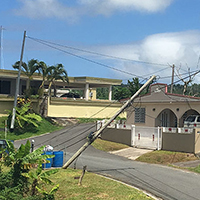 Our 5-part series: Hurricane Maria in Puerto Rico
Our 5-part series: Hurricane Maria in Puerto Rico
Hurricane Maria made landfall on Puerto Rico in September of 2017 and left a trail of devastation in the wake of its 165-mph winds. Living on Earth's Bobby Bascomb travelled to the island nine months after the storm to learn more about how the island was recovering. She filed a series of stories about the devastation and slow government response that followed. But she also found a renewed sense of community and resilience among the Puerto Rican people. In this special series she's joined by Adnelly Marichal, a Puerto Rican documentarian who lived through the storm and shares her personal insights on each of the five stories Bobby reported.
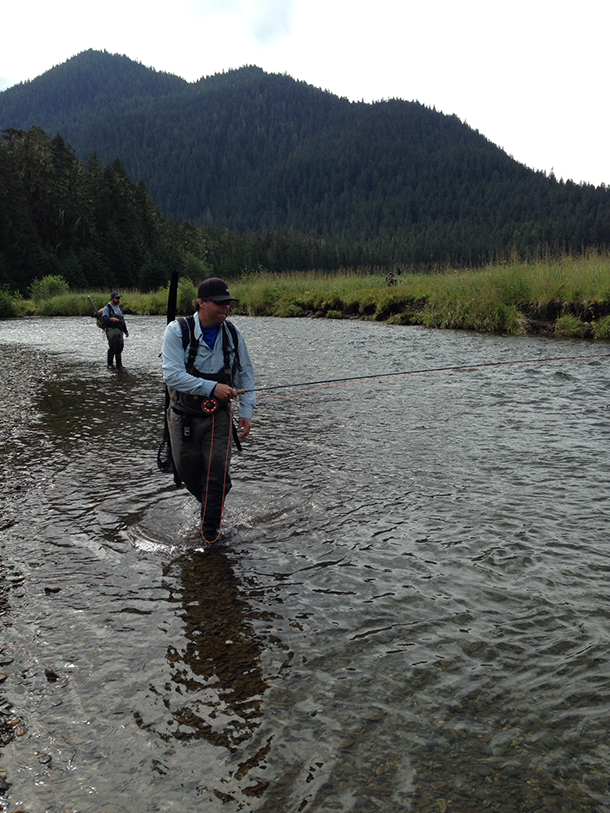 Alaskan River Riches
Alaskan River Riches
Southeast Alaska has one of the healthiest salmon fisheries in the world, thanks to strict regulation and bountiful wild rivers for fish to spawn. But mining development upstream in British Columbia has the Alaskan fishing community worried about the future of their industry.
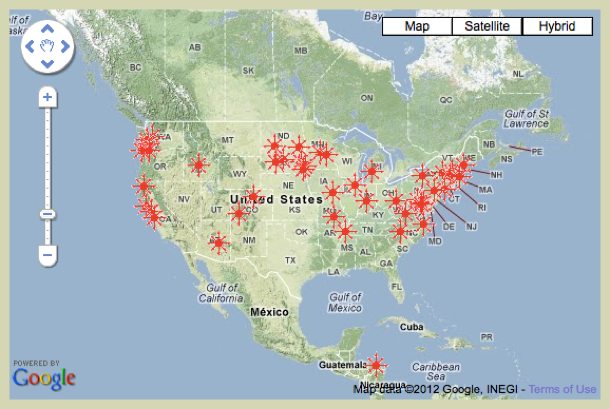 The Place Where You Live
The Place Where You Live
There’s no place like home…so, we want to hear about your home. LOE and Orion Magazine have launched a new series “The Place Where You Live.” Listen to some of our recent essays and find out how to submit yours.
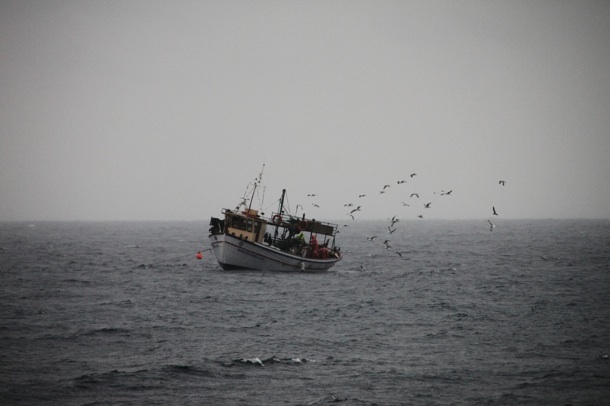 Go Fish: Striving for Sustainability
Go Fish: Striving for Sustainability
Living on Earth's series on efforts in the U.S. to make fish sustainable for consumers and fishermen.
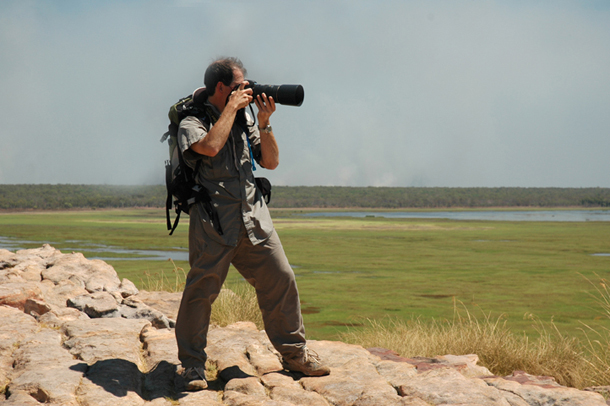 North Knife: An Expedition to Hudson Bay with Mark Seth Lender
North Knife: An Expedition to Hudson Bay with Mark Seth Lender
Producer Mark Seth Lender takes his recording gear and camera to Hudson Bay, Canada, just outside the Arctic Circle, to see polar bears, beluga whales, and Arctic foxes, oh my! Check out his blog posts below.
REDD Path to a Green Planet
Protecting forests could play a critical role in the fight against climate change. Many of the world's nations are banking on a scheme called REDD which puts a price on trees so they're more valuable standing than cut down. Living on Earth series "REDD Path to a Green Planet" travels to Africa, Southeast Asia, and South America to the people and places where the economic forces are driving deforestation.
Nukes
Protecting forests could play a critical role in the fight against climate change. Many of the world's nations are banking on a scheme called REDD which puts a price on trees so they're more valuable standing than cut down. Living on Earth series "REDD Path to a Green Planet" travels to Africa, Southeast Asia, and South America to the people and places where the economic forces are driving deforestation.
Generating Controversy: The Changing Climate of Coal
The problems and promise of coal, and the potential of new technologies.
Search for the Golden Moon Bear
Sy Montgomery travels to the home of the moon bear in Southeast Asia to track down what she hopes might be a new species of bear.
The Road Taken
Robert Frost wrote the poem "The Road Not Taken" while living in Ripton, Vermont. Frost's cabin in Ripton was the starting point for the road taken for hundreds of Vermonters walking toward a clean energy future.
Changing Climate, Changing Language
Degrees of Concern – Climate Change and New York City’s Future
Louisiana Storm Protection: Past, Present, and Future
Early Signs: Reports From a Warming Planet
A Watering Can, Some Seedlings, and the Greening of a Nation
The story of Nobel Prize Peace winner Wangari Maathai.
A River With Two Names: The Chattahoochee & Apalachicola Rivers
Children's author, Lynne Cherry
Lynne Cherry is the bestselling author and illustrator of numerous books for young readers. Many of her books concern environmental issues.
Living on Earth’s Ecological Literacy Project engages middle and high school students in a science-based exploration of their local environment and trains them in professional radio production.
Generation Next: Re-making the Human Race
A five part series
Women of Discovery
A series of intrepid women who explored the world.
Journey of the Pink Dolphins: An Amazon Quest
 Salmon in the Pacific Northwest
Salmon in the Pacific Northwest
The Point of No Return
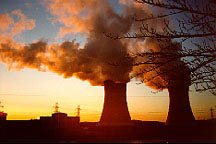 Three Mile Island - 20 Years Later
Three Mile Island - 20 Years Later
Three Mile Island was the site of America's worst commercial nuclear accident. Today, 20 years after the accident, we'll try to assess its impact on the physical and emotional health of people who live here. And we'll explore how this single event changed the course of the nuclear industry and the nation's energy policy.
 Exxon Valdez Oil Spill: Ten Years Later
Exxon Valdez Oil Spill: Ten Years Later
Ten years ago the supertanker Exxon Valdez ran aground, fouling Alaska's pristine beaches with oil. Exxon claims the environment has recovered, but scientists aren't so sure, and people who fish say they're still suffering.
"I think the spill affected everyone everywhere, and I would like to believe that all companies are working to prevent that kind of disaster again."
Living Estuaries
Estuaries, the vital coastal zones where rivers and streams meet the oceans. Nature designed them as marine nurseries and havens for migratory birds, but humans are getting in the way.
Thirst for Safe Water
The United States has one of the best water supplies in the world, and has eradicated some of the worst water-borne diseases like typhoid and cholera. But how healthy is America's drinking water supply?
Middle East Troubled Waters
Since civilization began, men and women have gathered at the well. For at the well is the source of life: water. Water is also the source of conflict between Israel and nearly all its neighbors.
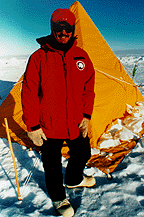 Antarctica Series
Antarctica Series
Living On Earth Reporter Terry FitzPatrick at "Upstream Bravo," a remote field camp where scientists are trying to learn if global warming has caused large sections of the Antarctic ice sheet to break free from the ground below and slip toward the sea.
Lead: The Silent Epidemic
More than 20 years ago the United States banned the use of the metal lead in gasoline and household paint. Adults are relatively immune to small exposures. But even minute amounts of lead can have devastating effects on the brains of young children, and there is evidence that millions of American children have been so poisoned.
Living on Earth wants to hear from you!
Living on Earth
62 Calef Highway, Suite 212
Lee, NH 03861
Telephone: 617-287-4121
E-mail: comments@loe.org
Newsletter [Click here]
Donate to Living on Earth!
Living on Earth is an independent media program and relies entirely on contributions from listeners and institutions supporting public service. Please donate now to preserve an independent environmental voice.
NewsletterLiving on Earth offers a weekly delivery of the show's rundown to your mailbox. Sign up for our newsletter today!
 Sailors For The Sea: Be the change you want to sea.
Sailors For The Sea: Be the change you want to sea.
 The Grantham Foundation for the Protection of the Environment: Committed to protecting and improving the health of the global environment.
The Grantham Foundation for the Protection of the Environment: Committed to protecting and improving the health of the global environment.
 Contribute to Living on Earth and receive, as our gift to you, an archival print of one of Mark Seth Lender's extraordinary wildlife photographs. Follow the link to see Mark's current collection of photographs.
Contribute to Living on Earth and receive, as our gift to you, an archival print of one of Mark Seth Lender's extraordinary wildlife photographs. Follow the link to see Mark's current collection of photographs.
 Buy a signed copy of Mark Seth Lender's book Smeagull the Seagull & support Living on Earth
Buy a signed copy of Mark Seth Lender's book Smeagull the Seagull & support Living on Earth

